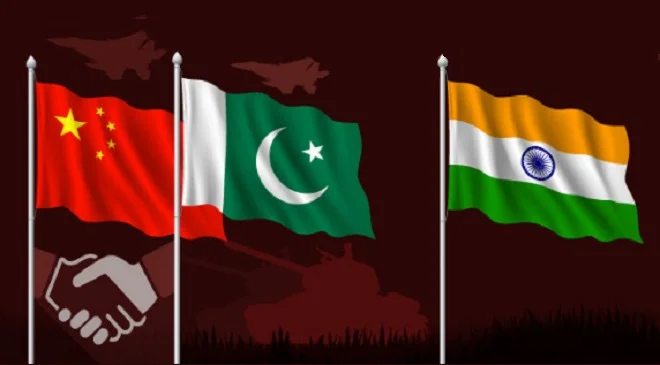India’s recent precision strikes on terror hubs in Pakistan and Pakistan-occupied Kashmir were not acts of provocation—they were acts of self-defence. The April 22 Pahalgam terror attack, which killed 26 innocent civilians, was traced to cross-border terror infrastructure, and India exercised its sovereign right to defend its citizens.
The nine targeted sites were not civilian zones, but bases linked to known terrorist organisations. There is not even a shadow of doubt about that—informal acknowledgments from within Pakistan match fairly open intelligence. For China to call this military action “regrettable” is, therefore, is a curious lapse of wisdom.
Beijing’s formal response—urging “restraint” and “peace”—has statesmanlike gravitas on the surface, but only there. Inside, it is without substance. Despite claiming to oppose “all forms of terrorism”, China has consistently shielded Pakistan-based actors from global scrutiny.
From blocking UN terror designations to sugarcoating Islamabad’s duplicity, China has long used its diplomatic clout to preserve its “iron brother” alliance—even at the cost of its own self-interest. In the 21st century, even it has stakes in a pacified Pakistan. If it chooses not to exert itself to bring that about when it clearly has the capacity, one must ask why.
Operation Sindoor was not an act of escalation—it was a precise, proportionate and necessary strike against terror. This zero-tolerance approach is not bluster, but a doctrinal outcome of decades marked by bloodshed and futile attempts at dialogue, even in the face of Pakistan’s use of terrorism as a tool of state policy. China’s reaction, on the other hand, smells of strategic hypocrisy.
Its calls for “fair investigations” ring hollow while it approvingly accepts Pakistan’s “resolute” actions against terror at face value—these have always been performative rituals, papering over denialism. Beijing’s refusal to name perpetrators or support global terror designations, including for 26/11-accused Sajid Mir, exposes its not-so-secret partisanship. Peace is not the absence of action, but the presence of justice. Equating aggressor and victim in the name of balance distorts the very foundation of international norms.
This is not neutrality. This is its opposite, dressed up in diplomatese. Let alone global acceptance as a credible superpower. If China seeks leadership in the Global South, it must do better. Align its words with actions, for one. At present, its regret over India’s defensive strikes rings hollow and its silence on terrorism speaks volumes.








































